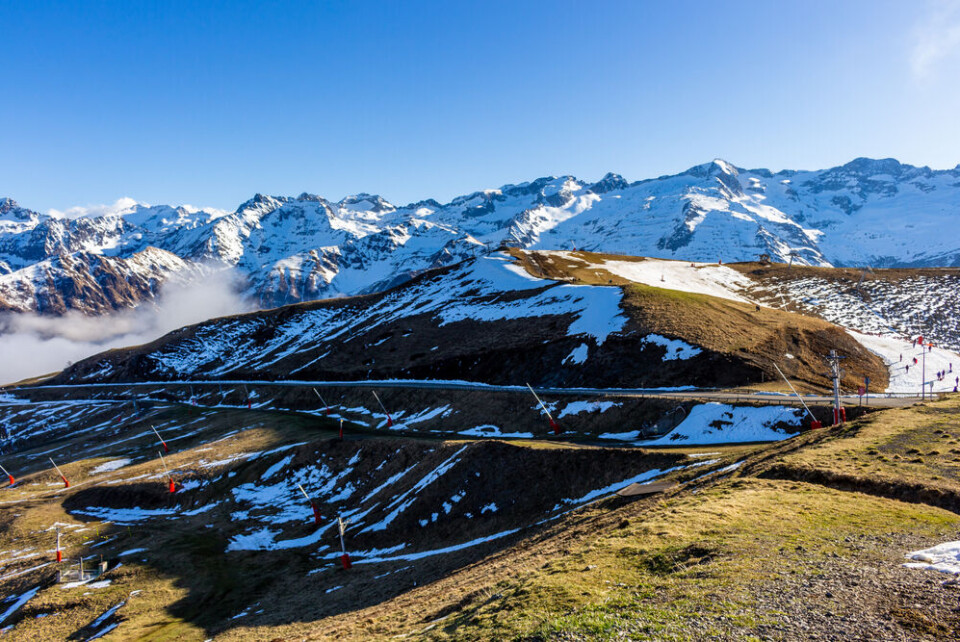-
Drinking tap water restricted for children in south-west France communes
Haute Garonne prefecture says the measure is precautionary and due to high chlorate levels
-
‘Trustworthy’ media label idea from Macron causes political storm in France
Comments prompted fierce political backlash from right but government insists it was taken out of context
-
French prime minister faces fresh problems to pass a 2026 budget
MPs continue to argue over budget but alternative measures could possibly see government toppled
Highest ski station in Pyrenees definitely to close
The resort reopened in 2021 after a group of enthusiasts tried to rescue it from €13million of debt but poor weather conditions helped put the final nail in the coffin

Measures to save the highest ski station in the Pyrenees have failed, and the station - Puigmal 2900 - is to remain closed, it has been confirmed.
The station, which is in Pyrénées-Orientales, had already been placed in administration just two years after the troubled resort reopened following its purchase by private developers.
The buyers had previously said they hoped to diversify the station’s activities beyond skiing and winter sports and create an all-weather ‘station of the future’ that would operate even if global warming reduced future snowfall.
Read more: Highest ski station in Pyrénées-Orientales to close
However, measures failed, and the station will remain closed. It will not reopen for the 2023-24 season, and it is currently unclear if it will ever reopen.
The station - whose highest slopes are at an altitude of 2,900m - first closed in 2013 after accruing a debt of €13 million. It reopened in 2021 after seven enthusiasts who loved the site bought it with a view to revamping its operation.
However, low snowfall in winter 2022 contributed to the resort’s issues, and reduced public visits further. The station’s accounts struggled, and were placed in receivership.
The end of ‘the Projet Puigmal 2900’ was announced on Facebook.
“I'm not even angry any more,” said Éric Matzner-Løber, one of the seven Puigmal buyers, to Actu.fr. “I've lost all my savings, but I'm not even bitter. It's more the disappointment of not having been able to achieve [what we wanted]. It's largely our fault, but I think it's a shame.”
Local issues?
Mr Matzner-Løber said that he had not felt particularly well-supported by the region in his attempts - along with the six other buyers - to revive the station.
“We've abandoned a ready-to-go station,” he said. “Maybe the next [buyers] will be able to use our facilities…so much the better. We were even prepared to give our shares to the Trio Pyrénées group, so that they could have a ‘turnkey’ resort. They didn't respond at first, then said it wasn't possible.”
The Trio Pyrénées group is a public local company. The department of the Pyrénées-Orientales defended its stance, saying that the company is not legally able to enter into business with private individuals, and can only work with public companies.
Mr Matzner-Løber said: "We had an alternative project that could have worked [but] people have had the same ski resort model for 40 years, and it's only natural that they should stick with it. Maybe we've been seen as different, and that's not good.”
Isidore Payrato, the mayor of Err - the town to which the station belongs - said after the station closed for a second time: “It is heartbreaking because it is a site which represents a certain amount of economic activity for the area.”
There are four full-time employees and 30 extra seasonal workers every winter. It will now be for the town to decide on the future of the station and whether to search for new investors.
It comes as ski stations in France are announcing and confirming this winter’s reopening dates, amid a difficult time for the industry due to a lack of snow and difficult economic conditions, together with continuing issues with visitor numbers following the Covid-19 slump.
Related articles
Climate change: Snow disappearing from Alps, France included
























